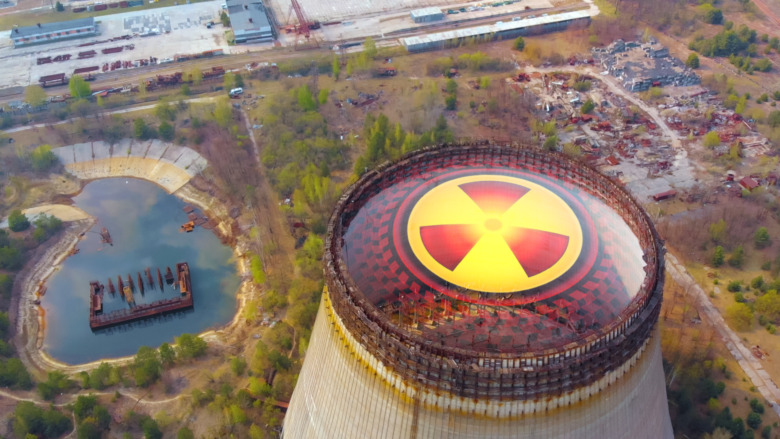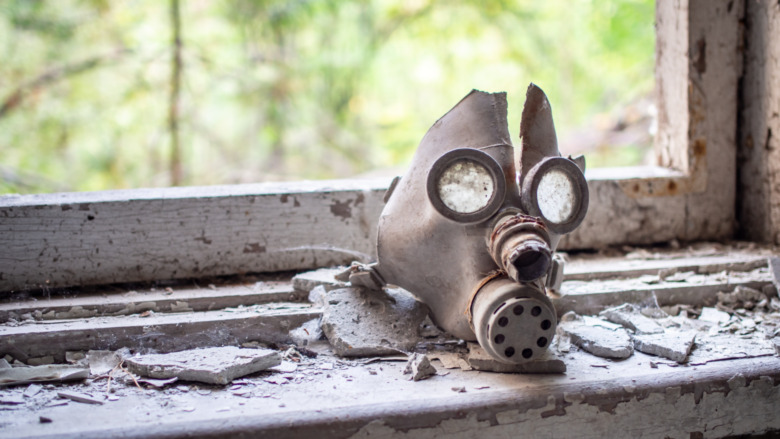Study Uncovers Surprising News About Chernobyl Survivors And Their Children
The Chernobyl disaster of 1986 is one of the most iconic disasters of the 20th century, and not just because it got made into a hit HBO series. When a safety drill at the Ukrainian power plant went horribly wrong, it resulted in a total meltdown of one of the cores, immediately killing 31 people and releasing enormous amounts of radioactive material into the environment. Two entire cities had to be permanently evacuated — perhaps as many as 200,000 people — and it's estimated that thousands were stricken with chronic disease due to the resulting radiation exposure (via BBC).
In science fiction, of course, radiation does all sorts of cool things like give you spider powers; the reality is, sadly, a lot less fun. Excessive radiation can do direct damage to DNA strands; the human body will then attempt to repair them, but in doing so, it often leaves out material or introduces errors (via Ars Technica). This mutated DNA leads to diseases like cancer far more frequently than it does mutant powers, and worst of all, genetic mutations could potentially be transmitted to the next generation, since sperm and egg cells mutate just as easily as anything.
The potential there has led to worries about everything from chronic, generational cancer to horrific birth defects. If a newly released study is accurate, however, it looks like those fears were at least somewhat overblown.
Good news for children of Chernobyl survivors
According to a new study published in Science, the children of parents exposed to radiation from Chernobyl exhibit no signs of excess mutations at all. "These mutations may be in the parents' blood," Stephen J. Chanock, one of the paper's authors, told The Guardian, "but we're not seeing this horrific science-fiction-like mutation of sperm and eggs. I think this should be reassuring data that there's a lack of evidence for substantial or significant transgenerational effects."
This is excellent news, not just for Chernobyl survivors, but for survivors of Japan's 2011 Fukushima disaster as well. That more recent meltdown, caused by a magnitude-9.0 earthquake and a resulting tsunami, resulted in no deaths at the time (though nearly 160,000 had to be evacuated), but its long-term outcome is harder to estimate. The Japanese government confirmed the first related cancer death in 2018, when one of the workers at the plant died from lung cancer (via BBC), and it's likely that more are on the way. However, if the news from Chernobyl is any indication, it appears that whatever genetic damage the meltdown caused will be confined to a single generation.
That does nothing to mitigate the horrors experienced by those who were directly harmed, of course, but it should assuage the fears of anyone worried that nuclear meltdowns posed an extinction-level threat. Turns out they're just really, really bad — not world-ending.

